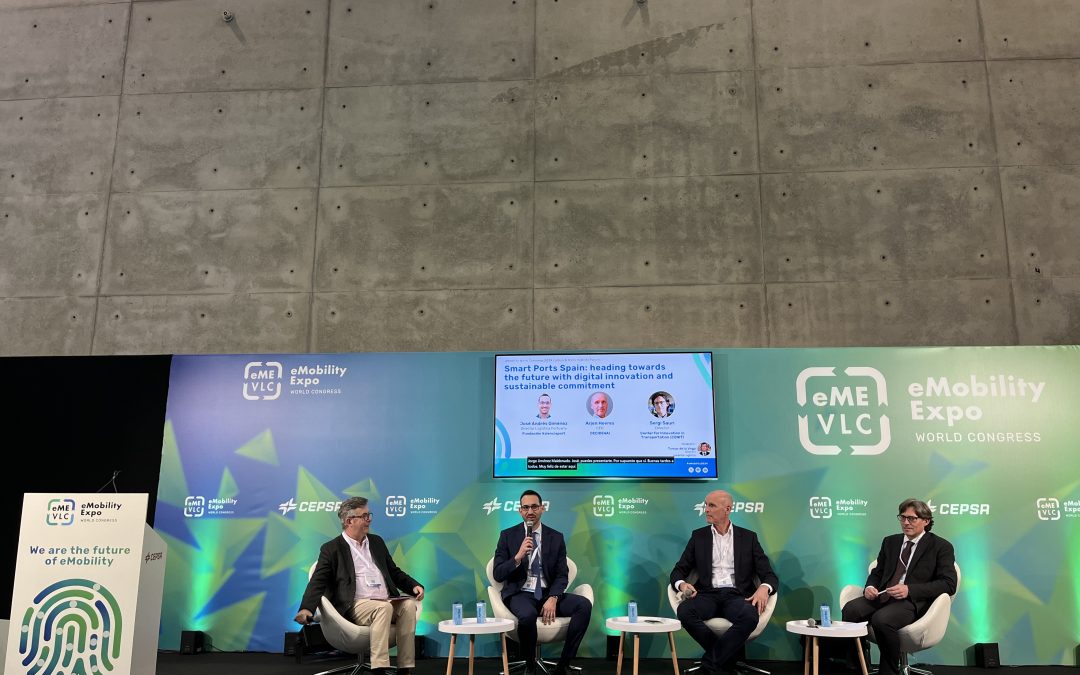-
On the horizon, digital innovation and sustainable engagement converge to chart a new era in port management. Ports are not only embracing technology-driven efficiency, but are also determinedly leading the transition towards environmentally friendly practices and decarbonisation of their operations.
Within the framework of the eMobility Expo World Congress, Tomás de la Vega, Managing Director at Logistop, moderated the round table “Smart Ports Spain: heading towards the future with digital innovation and sustainable commitment” in which topics such as sustainability, resilience, digitisation, synchronisation, interconnectivity with the entire supply chain… It also highlighted the need for port authorities to adopt the strategic vision necessary to take a step forward in digitisation and synchronisation that allows them to become the main actor and coordinator between the private and public sectors.
José Andrés Giménez Maldonado, Director of Port Logistics, Fundación Valenciaport, stressed the need to pay the necessary attention to all the unwanted effects that can produce negative impacts not only on port activity, but on all economic activity. On the other hand, José Andrés pointed out, as one of the main challenges to be faced, to improve the current integration with the entire supply chain, making it more effective; an integration in which digitalisation and synchronisation of operations take on great importance. “The supply chain is a very fragmented ecosystem and this means that, at times, decision-making capacity is limited to the area of control and/or influence of each actor. In addition, transport still has a conservative profile and a certain resistance to introducing more disruptive technologies. Today we have a great opportunity to make a difference by trying to include new concepts and new technologies that are already available. And, in this sense, the first step should be to try, to test these new technologies that will allow us to be more efficient,” he said.
Arjen Heeres, CEO, DECIDE4AI, pointed out the important role that synchronisation can play in saving costs for companies, since “new technologies (AI, mathematical optimisation…) make it possible to calculate exactly what needs to happen at each moment in the supply chain, allowing the use of available resources in an intelligent way, helping ports to be more profitable”, he said, adding the need for greater collaboration between all companies in order to implement effective optimisation and synchronisation.
For his part, Sergi Sauri, Director, Centro de Innovación del Transporte (CENIT), put the spotlight on all that still needs to be done, with greater collaboration between the public and private sectors being necessary. For this to happen, there must be leadership from the public sector in the dialogue with all actors. “Companies will have to change completely and become more sustainable and, in addition, the public sector must be very clear with regulation,” he said.

